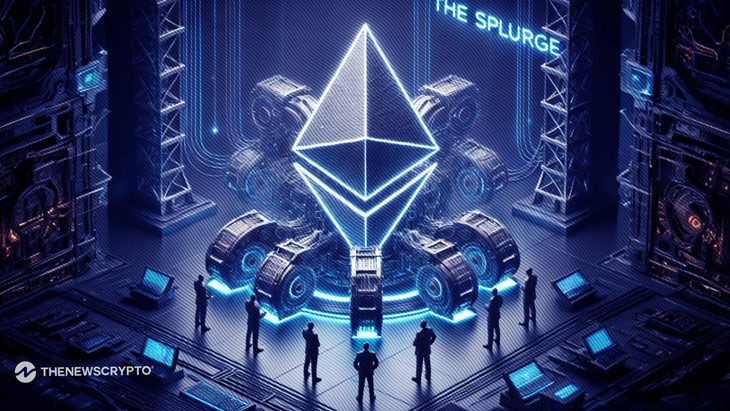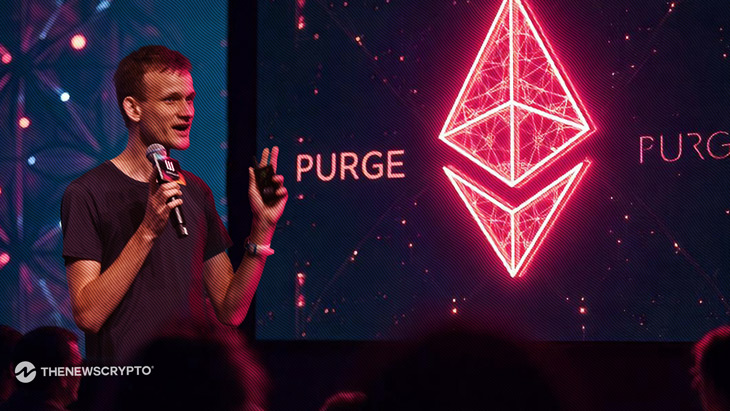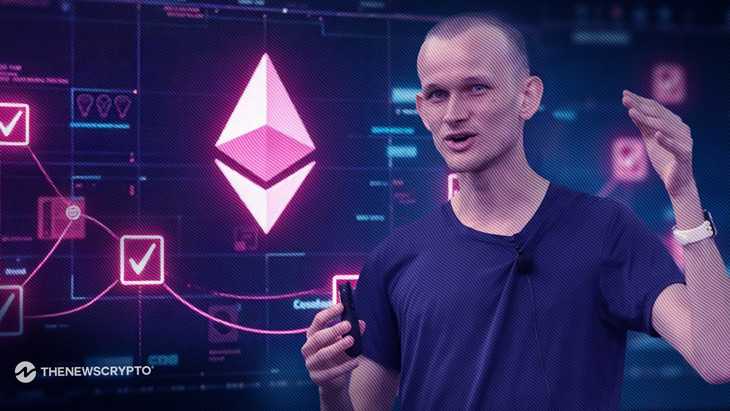
- Ethereum’s “Splurge” focuses on incremental improvements vital for protocol success.
- The EVM Object Format (EOF) aims to enhance code execution and efficiency.
The future of the Ethereum protocol is on the brink of exciting changes, particularly highlighted in Vitalik Buterin’s latest segment, part 6: “The Splurge.” This section dives into several incremental improvements that may not fit into tidy categories. But these are crucial for the protocol’s overall success. Vitalik’s vision aims to refine the Ethereum Virtual Machine (EVM) and enhance user accounts with account abstraction. To improve transaction fee structures, and explore advanced cryptography.
Possible futures of the Ethereum protocol, part 6: The Splurgehttps://t.co/OabLldVCqj
— vitalik.eth (@VitalikButerin) October 29, 2024
As Ethereum evolves, especially with the upcoming hard fork, it focuses on essential features like EOF, account abstraction, and enhancements to EIP-1559. Each of these elements offers significant benefits but also presents unique challenges and trade-offs.
How Is Vitalik Shaping “The Splurge”?
One of the main goals of “The Splurge” is to bring the EVM to a stable, high-performance level. Right now, the focus is on transitioning to the EVM Object Format (EOF). It will help streamline code execution and improve overall efficiency. EOF is set to be included in the next hard fork. By separating code from data, restricting dynamic jumps, and introducing a new subroutine mechanism, EOF will facilitate the development of modular arithmetic operations and other improvements that could speed up cryptographic functions.
Account abstraction is another vital area of development that Vitalik emphasizes. Currently, transaction verification relies solely on ECDSA signatures, limiting flexibility. Proposed updates aim to enable users to pay transaction fees using ERC20 tokens, enhancing accessibility and convenience for everyone involved.
While EIP-1559 has improved the speed of block inclusion since its activation, it still encounters challenges regarding the adjustment speed and efficiency of gas pricing mechanisms. Proposed changes include a multidimensional gas model, which would allow separate pricing for different resources. This approach aims to streamline the gas mechanism and address discrepancies between average and worst-case scenarios.
Additionally, researchers are exploring verifiable delay functions (VDFs) to provide a more reliable source of randomness for Ethereum, replacing the less secure RANDAO-based randomness. The focus is on ensuring that VDFs can resist unexpected optimizations while delivering reliable randomness without manipulation. However, a significant challenge lies in creating a VDF that is both efficient and capable of preventing hardware acceleration or unexpected parallelization attacks.
Overall, “The Splurge” signifies a commitment to the iterative refinement of Ethereum’s core functionalities. By focusing on these various enhancements, Ethereum aims to solidify its infrastructure, enhance user security, and increase scalability for future applications.
Highlighted Crypto News Today
Coinbase CEO Demands SEC Apology for ‘Frivolous Cases



